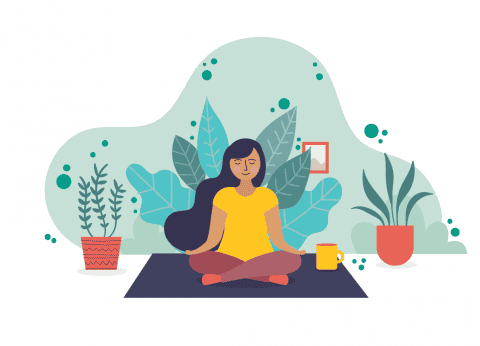This is an automatically translated article.
“If you want others to be happy, practice compassion. If you want to be happy yourself, practice compassion” - His Holiness the Dalai Lama
Compassion in life is one of the few things that we can practice to bring happiness to ourselves. and for others. Several studies have also demonstrated that compassion can be cultivated through the practice of meditation.
1. What is compassion in life?
Compassion in life is the desire to alleviate the suffering of others. Compassion is primarily rooted in empathy, and is often expressed in actions directed at the suffering of others and efforts to alleviate that suffering.
2. How to cultivate compassion
Compassion is not an abstract, distant category, each person can learn how to cultivate, how to cultivate compassion in life. The best way to cultivate compassion is to limit the scope to people, things, or activities of daily living. Gradually, we can develop and extend compassion toward everyone. To cultivate compassion there is no other way but to practice, practice whenever possible from the smallest act of daily life. In fact, we can practice compassion in life step by step. As simple as through fasting, liberating or meditating, we can both expand and deepen our compassion.
3. The brain can learn compassion through meditation
A new study shows that the regular practice of meditation has the ability to activate the brain and make people more empathetic towards others. This is the first study to use functional magnetic resonance imaging (fMRI) to analyze the effects of meditation on brain activity. The results show that people can practice, cultivating compassion similar to learning to play a musical instrument. The study also suggests that meditation practice is also a useful tool in preventing bullying, violence, aggression and depression by altering brain activity so that people empathize, the researchers say. with the feelings of others.
Participating in the study were 16 Tibetan monks with meditation experience and a comparison group of 16 people with no meditation experience. Those in the comparison group were taught the fundamentals of meditation two weeks before the study. During the study, the researchers used fMRI to measure the participants' brain responses to a variety of neutral or negative sounds, such as a distressed woman, a baby laughter or noise around the restaurant.
Results showed a significant increase in activity in the part of the brain called the insula in those who experienced meditation. This is an extremely important area in emotional development in general and in particular in establishing the body's response to emotions such as heart rate and blood pressure, and providing that information to other organs. of the brain. Brain activity was less increased when exposed to neutral or positive sounds. The intensity of brain activity is also related to the intensity of meditation.

Cách nuôi dưỡng lòng từ bi thông qua phương pháp thiền định
4. What are the benefits of meditation?
4.1 Reduce stress Normally, mental and physical stress increases levels of the hormone cortisol, enhancing the release of inflammatory chemical mediators called cytokines. This leads to bad health effects such as disrupted sleep, promotes depression and anxiety, increases blood pressure, contributes to fatigue and negative thinking. Meditation not only helps reduce stress, but it can also reduce symptoms in people with stress-induced health conditions such as irritable bowel syndrome, post-traumatic stress disorder, and fibromyalgia.
4.2 Managing Anxiety Meditation can reduce stress and anxiety levels. One study found that eight weeks of meditation reduced anxiety symptoms in people with generalized anxiety disorder and improved their ability to cope with stress. Meditation can also help manage anxiety caused by work. One study found that employees who practiced meditation for 8 weeks had improved feelings of happiness, less anxiety and less stress at work compared to a control group.
4.3 Improve Mental Health There are several types of meditation that can help improve self-image and help practitioners have a more positive outlook on life. A review of 18 studies found that people who received meditative therapies reduced depressive symptoms, compared with those in a control group.
4.4 Increase self-awareness Practicing meditation can help you understand yourself better and develop yourself better. In addition, regular practice of meditation can improve problem-solving skills and increase creativity.
4.5 Increase concentration People who regularly practice meditation have a higher ability to concentrate. Meditation can be beneficial even when practiced for only a short period of time each day. One study found that meditating for just 13 minutes a day enhanced attention and memory after 8 weeks.
4.6 Improves Memory In addition to fighting age-related memory loss, meditation can also improve memory in dementia patients.
4.7 Helps Cultivate Kindness Certain types of meditation in particular can increase positive feelings and actions towards self and others. Metta, a type of meditation also known as loving-kindness meditation, begins with developing thoughts and feelings that are kind to yourself. Through practice, people learn to cultivate compassion and tolerance towards others.
4.8 Helps Fight Addiction Mental discipline can be developed through the practice of meditation, which in turn helps you break dependence by increasing your control over your triggers. Meditation can also help you control your cravings. A review of 14 studies found that meditation helped participants reduce cravings.
4.9 Improve sleep Practicing meditation regularly can help you control or redirect the repetitive thoughts that lead to insomnia. In addition, it can help relax your body, relieve stress and put you in a peaceful state, easy to fall asleep.

Lợi ích của thiền định có thể giúp bạn có giấc ngủ ngon
4.10 May Lower Blood Pressure Meditation can also improve health by reducing stress and working stress on the heart. Over time, high blood pressure makes the heart work harder to pump blood, which can lead to impaired heart function. High blood pressure also contributes to atherosclerosis, which can lead to stroke. Meditation helps control blood pressure by relaxing nerve signals that regulate heart function and blood vessel contraction
4..11 Helps manage pain People who practice meditation and don't meditate regularly There are similar causes of pain, but those who meditated show a greater ability to cope with pain or even reduce pain sensation.
5. Tips for effective meditation practice
5.1 Find the Right Time Sometimes you will find different sources recommend different ideal times to meditate. But in fact, the ideal time is whenever you feel it's right for you. Whatever time you choose, try to practice regularly.
5.2 Take it easy You don't have to meditate in a certain position. Instead, just meditate in a position that feels most comfortable and natural to you. Sitting in a chair or lying down is perfectly fine. If you have trouble sitting still, try meditating while walking or standing. Also, consider creating a comfortable, soothing meditation space, and incorporating candles, music, or photos and mementos of loved ones can all help increase the effectiveness of your meditation.
5.3 Try a meditation app or podcast You can easily use your phone to access meditation apps or podcasts. You can also personalize the app to track your progress and change your meditation method based on your current state of mind.

Luyện tập thiền định hiệu quả với một số ứng dụng trên điện thoại
5.5 Start practicing You are ready for your daily meditation. Here is a simple meditation that you can apply:
Find a place where you feel comfortable and completely relaxed. Set the timer for three to five minutes. Start by focusing on your breath. Notice how it feels each time you inhale and exhale. Breathe slowly and deeply naturally. As soon as your thoughts start to wander, take note of them, let them go, and refocus on your breathing. Open your eyes slowly when the time is up. Observe your surroundings, pay attention to your body, your emotions. You may or may not feel different. But over time, you will gradually become more interested in your own experiences as well as your surroundings. These feelings will linger long after the completion of the meditation. Meditation has long been a lifesaver for people with psychological problems such as anxiety, stress, and insomnia. In addition, through the practice of meditation, we can also cultivate and expand compassion and love to bring happiness to ourselves and to others.
Please dial HOTLINE for more information or register for an appointment HERE. Download MyVinmec app to make appointments faster and to manage your bookings easily.
Reference sources: webmd.com, healthline.com












